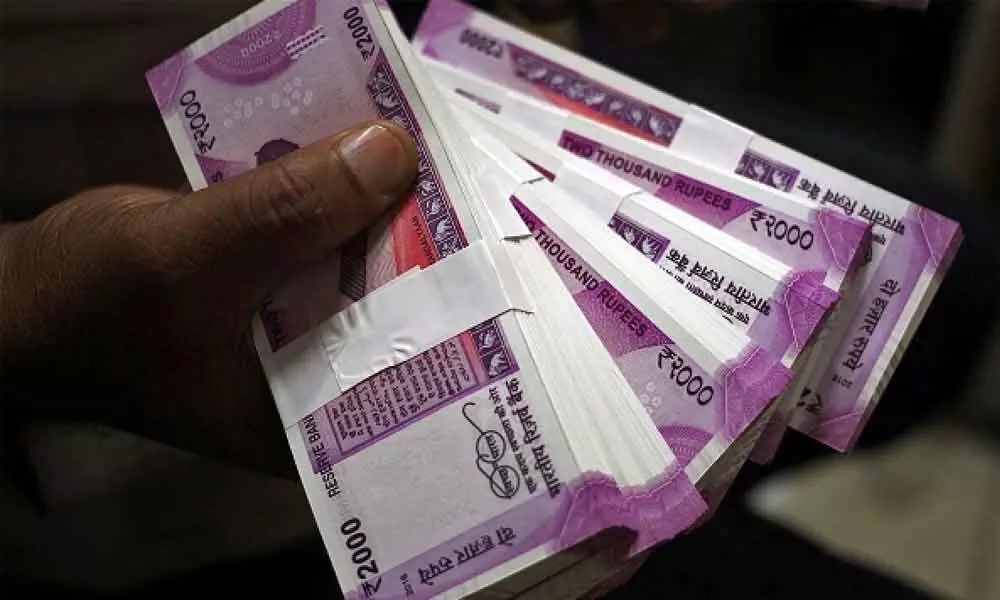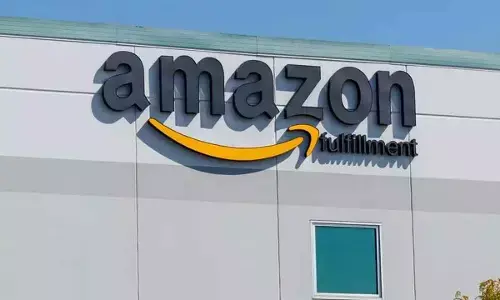Honour businessmen to jumpstart growth

The government is following the policy of “balanced budget” which means that the expenditures will be reduced to match with the income.
The government is following the policy of "balanced budget" which means that the expenditures will be reduced to match with the income. The expenditures and income will be in balance.
The borrowing undertaken to make expenditures in excess of the income will be less. This borrowing is called fiscal deficit. This policy was adopted by the United States of America during the 1930s.
The American economy was buoyant during the twenties. Share markets were in a bull run. But this was a bubble. It led to the crash of 1929 which is known as the "Great Depression." Thereafter the US government followed the policy of balanced budget.
The crash led to a reduction in production and tax collections. The government reduced its expenditures in the same ratio in order to balance its budget.
Theory was that a balanced budget will promote growth. But the economy continued to slide down; and the government continued to reduce its expenditures to match with the reduced revenues.
Economists proposed two contrary solutions to the Depression. The mainstream economists advised the government to continue to implement the policy of balanced budget.
They said that reducing government expenditures will lead to lesser government demand in the market, to lesser overall demand in the market and to a decline in the prices which will soon generate new private demand and the economy will revive. The US government followed this policy.
However, instead of reviving the economy, it led to further deepening of the recession which continued till1939.
In this dismal situation, famed economist John Maynard Keynes suggested an exactly opposite policy.
He said that consumers were caught in a psychology of fear and were unwilling to increase spending. In normal conditions, the expenditure of one person becomes income of another. The expenditure on the purchase of potatoes by the homemaker becomes income for the farmer.
Expenditure by the student for purchase of books becomes income for the publisher. This virtuous circle of expenditure and income had got broken because the recipient was not spending his income. The farmer was keeping the income obtained from sale of potatoes in steel safe fearing that the economy in the coming year could be worse.
He wanted to hold his income for security. The publisher was not publishing new books because he was afraid that they would not sell. Keynes suggested the government must increase expenditures by borrowing money and allow the fiscal deficit to increase.
That, he said, would generate a virtuous cycle of demand and investment would be jumpstarted. The mechanic pours water into the pump to prime it, and then the pump lifts much larger amounts of water, similarly the government must 'prime' the economy by borrowing and making expenditures in, for example, making of highways.
That, said Keynes, would create confidence among the farmers and publishers and they would start investing in new tractors and books. President Truman listened to Keynes' advice. He undertook massive investments in the Interstate highway system.
At the same time, a huge demand for armaments was created though the expenditures for the Second World War. The mood of the country changed because of the confidence shown by President Truman. The US economy came out of the recession.
The main point is "emotional." The farmer will buy a new tractor if he is confident of selling more potatoes in the next year. The publisher will publish a new book if he is confident of selling it in the next year.
President Truman was able to build this confidence. The role of increased government expenditures was important because of the confidence that they generated rather than the demand that they created.
President Trump has followed this confidence building policy. The American people are enthusiastic that protectionism and tax cuts espoused by him will bring good results. Thus, the American people are spending and investing.
Growth is up and unemployment is down. Trump is actually not making much increase in the expenditures in building of infrastructure like airports, yet growth is up because of the confidence generated by Trump.
Now we can assess the suitability of the balanced budget policy taking the American experience as an anchor. We have before us three events relating to the American economy. First event was of the bubble bursting in 1920s.
The free market led to the development of a stock market bubble which burst and the economy went into a recession. The second event was of President Truman making expenditures in the Interstate Highway system which created a sense of confidence among the people. The recession was broken.
The third event was of the US economy gaining growth under Trump. He has created a sense of confidence among the American people by pushing protectionism and tax cuts even though there is not a huge increase in government expenditures.
The first event was of the bubble bursting in 1920s. I think we are moving in the same direction. The stock market is booming while GDP growth rate is floundering. Unemployment is up. We are in a bubble regime.
It is quite likely that the stock market bubble will burst. Second event in the US' story was that of the increased borrowing and expenditures. Prime Minister Modi is following exactly the opposite policy. The capital investments of the government have been declining.
The investments he is making in the highways and bullet train do not appear to be generating a positive emotional ambience. The typical businessperson remains lukewarm about the prospects of revival of growth. The third event in the US' story is of the economy gaining growth under Trump.
He has encouraged manufacturing to come back to the US by increasing import duties even though there is not much increase in expenditures.
Thus, whether it was increased expenditures by President Truman, or not so much increased expenditures by President Trump, the growth was created by the confidence created among the businessmen by these two Presidents even though they followed opposite policies with regard to government expenditures. This, I think, is the real lesson for India.
The recession in our country is mainly due to the lack of confidence among our businesspersons and the resulting reduction in consumption and expenditures. There is a fear phobia among our businesspersons.
Our capital is fleeing due to the feeling of "tax terrorism" that has been voiced by many industrialists. Trump has reduced income taxes, increased expenditures and generated confidence among businesses and consumers.
Modi too has reduced income taxes, increased expenditures but has not generated confidence among businesses and consumers. The real challenge before Modi is to generate confidence that doing business in India will be profitable. Only then we will have growth.
Author was formerly Professor of Economics at IIM Bengaluru







